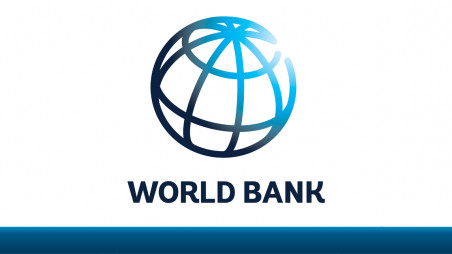“World Bank Projects Slower Global Growth for Third Consecutive Year in 2024”
The World Bank’s latest Global Economic Prospects report paints a somber picture, warning of a continued slowdown in global growth for the third consecutive year. The ongoing COVID-19 pandemic, coupled with the repercussions of the Ukraine conflict and subsequent inflation and interest rate hikes worldwide, have set the stage for what could be the most challenging half-decade performance in 30 years.


The World Bank’s latest Global Economic Prospects report paints a somber picture, warning of a continued slowdown in global growth for the third consecutive year. The ongoing COVID-19 pandemic, coupled with the repercussions of the Ukraine conflict and subsequent inflation and interest rate hikes worldwide, have set the stage for what could be the most challenging half-decade performance in 30 years.
Global GDP is forecasted to grow by a modest 2.4% this year, down from 2.6% in 2023 and significantly lower than the 6.2% rebound witnessed in 2021 as the pandemic initially subsided. This trend indicates a weaker growth trajectory in the 2020-2024 period compared to historical downturns such as the global financial crisis of 2009, the late 1990s Asian financial crisis, and other economic downturns in the early 2000s.
World Bank Deputy Chief Economist Ayhan Kose highlighted that excluding the pandemic-induced contraction in 2020, the projected growth for 2024 is expected to be the weakest since the 2009 global financial crisis. Additionally, the World Bank foresees a slightly improved global growth of 2.7% in 2025, yet this figure has been revised down from an earlier forecast of 3.0%, primarily due to anticipated slowdowns in advanced economies.
The aspiration of eradicating extreme poverty by 2030 seems increasingly challenging, with geopolitical conflicts impeding economic progress. World Bank Group Chief Economist Indermit Gill expressed concern, remarking that without substantial corrective measures, the 2020s might be regarded as a lost decade with paralyzing debt levels and food insecurity affecting a significant portion of the global population, especially in developing countries.
While the US exhibited robust spending, leading to a higher-than-expected growth rate in 2023, the World Bank anticipates a slowdown to 1.6% growth in 2024 due to tightened monetary policies and decreased savings.
Conversely, the eurozone faces a bleaker outlook with restricted credit conditions, resulting in a trimmed growth forecast of 0.7% for 2024.
China, a crucial driver of global economic activity, is expected to experience a slowdown, forecasting a growth rate of 4.5% in 2024, marking its slowest expansion outside the pandemic-affected years.
To counter this deceleration in growth, the World Bank advocates for substantial investments, particularly in emerging markets, stressing the need for accelerated funding of approximately $2.4 trillion annually for transitioning to clean energy and adapting to climate change. However, achieving such investment escalations requires comprehensive reforms encompassing structural changes, fiscal and monetary policy improvements, and enhancements in trade and financial frameworks.
The report underscores the urgent need for concerted efforts to steer global economies away from a protracted period of sluggish growth, addressing not only immediate challenges but also prioritizing sustainable and inclusive economic recovery.
Sources By Agencies







